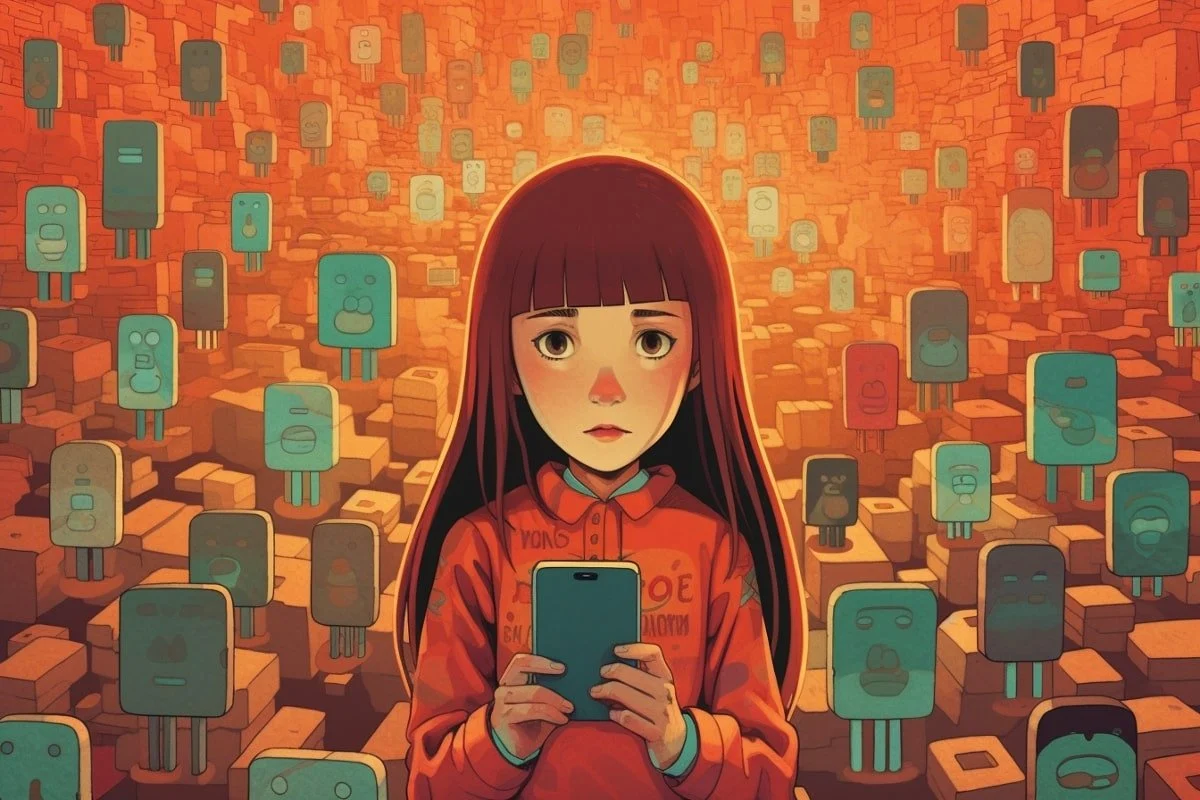In the age of the digital revolution, social media platforms have taken center stage in our daily lives. They connect us, inform us, entertain us, and even shape our opinions. Yet, the frequent use of these platforms can evolve into an addiction, especially among young users. But what makes social media addiction more perilous for children compared to adults?
1. Brain Development
Children’s brains are in a constant state of growth and evolution. The prefrontal cortex, responsible for impulse control, judgment, and decision-making, is one of the last areas of the brain to mature. Consequently, children may find it more challenging to set boundaries or limit their usage. Prolonged exposure to social media at such a developmental stage can impede cognitive growth and can engrain unhealthy habits that persist into adulthood.
2. Peer Pressure & Validation
The desire to fit in is a universal sentiment among children and teenagers. Social media intensifies this sentiment by providing a platform for instant feedback in the form of likes, shares, and comments. The incessant need for validation and the fear of missing out (FOMO) can lead to an over-reliance on these platforms for self-worth, creating a vicious cycle of addiction.
3. Exposure to Inappropriate Content
While adults have the maturity to discern between genuine information and malicious content, children might not. They are more vulnerable to misleading information, cyberbullying, and other online threats. Without adequate guidance, children can internalize negative messages, which can affect their self-esteem and mental well-being.
4. Impacts on Physical Health
Extended screen time is detrimental to everyone, but children are particularly susceptible. The blue light emitted by screens can interfere with their sleep patterns, leading to sleep deprivation. Additionally, an inactive lifestyle coupled with hours spent on social media can contribute to health problems like obesity.
5. Emotional & Psychological Ramifications
Social media showcases a curated version of reality. Constant exposure to such content can make children feel that their lives are inadequate in comparison. This skewed perception can lead to feelings of loneliness, anxiety, and depression.
6. Less Time for Offline Activities
When children are engrossed in the virtual world, they miss out on essential offline activities, from physical play and hobbies to face-to-face interactions. Such activities play a crucial role in a child’s holistic development, teaching them critical life skills and providing them with real-world experiences.
While social media has its advantages, it’s essential to recognize the potential pitfalls, especially for young users. Parents, educators, and society at large need to play a proactive role in ensuring children use these platforms responsibly. By setting limits, encouraging offline activities, and engaging in open conversations, we can protect the younger generation from the adverse effects of social media addiction.
